Jodie Ginsberg: How censorship stifles debate
[vc_row][vc_column][vc_video link=”https://youtu.be/Gy4ZfnnTOKM”][vc_column_text]A speech given by Index on Censorship CEO Jodie Ginsberg at St Mary’s Cathedral, Limerick, Ireland for the Limerick Civic Trust in association with Banned Books Week.
In 1634, the English lawyer and author William Prynne was sentenced to life imprisonment, fined £5,000 (more than £1 million in today’s money) and had both his ears cut off. His crime? The publication of Histriomastix – a thousand-page Puritanical tome dedicated to showing that plays were unlawful and incentives to immorality. He didn’t have many good things to say about women either.
It is a dreadful irony that this work, which in effect advocates censorship, resulted in some of the most gruesome punishments you can inflict on an author for their writing. Nor did his punishment end there – accused of publishing”seditious libels” again in 1637, Prynne had the letter SL branded on both his cheeks.
I mention the example of Prynne because it is the first cited in an exhibition of book covers currently on display at Pembroke College, Cambridge, where this week my organisation kicked off a series of talks and discussions for Banned Books Week, of which this lecture is the final event.
And I mention it because while it reminds us of how far we in the UK and Ireland have come in the past 350 years, the exhibition was also a powerful reminder of the fact that censorship is still alive and well – albeit in different forms – in our democracies. The exhibition ran along two sides of the library. On one side were the cases from the 1630s to 1800s. The entire other side reflected instances of censorship in the UK just in the past 100 years. This included – in 1946 – the burning of copies of insipid love story Forever Amber by Kathleen Winsor – not by the state but by public libraries no less.
Stop to think of that for a moment. In 1946, barely a decade after the perhaps some of the most infamous book brings in history – those of Nazi Germany, public libraries in the UK thought it fit and proper to burn a historical romance that one judge in the States described as “soporific rather than aphrodisiac”.
That was 1946. A bygone era perhaps? Sadly not. Sixty-four years later in 2000, a New York-based Limerick man took out a $800 half-page advertisement in Irish-American newspaper, the Irish Echo, inviting people to bring copies of Angela’s Ashes to a book-burning ceremony to protest this way this city was treated in the novel and the film of the same name.
The Angela’s Ashes incident shows us the urge to censor, to limit the publication or promotion of ideas we find offensive – whether on grounds of obscenity, of religion, or politics, remains strong.
This talk will examine the new sources of censorship – not just in the context of literature – and posit some ways we can resist the urge to silence others.
First, a little about myself and why I care about these issues and about the organisation I run. I am a journalist and have wanted to be a journalist for as long as I can remember. As a child, I would make my friends play ‘the news’ which we then performed to our long-suffering parents and I dreamed of being BBC foreign correspondent Kate Adie. When I finally got to cover a war – civil conflict in Ivory Coast – I discovered I did not after all want to become a war correspondent and ended up as London Bureau Chief for Reuters news agency. Whereupon I found myself in charge of coverage for the UK riots of 2011.
I became a journalist because I wanted to tell stories that were not being heard. I love literature because I believe in the power of the written word to convey and transport us to a world beyond our own imagining and that my own world is enriched as a result.
So it seemed a natural fit when I was asked if I was interested in running Index on Censorship, one of the world’s leading organisations in the defence of free expression. Index on Censorship was founded 45 years ago by the poet Stephen Spender in response to what seemed like a simple request: what could the artists and intellectuals of the West do to support their counterparts behind the Iron Curtain and those under the thumb of oppressive regimes elsewhere? Organisations like Amnesty and PEN already existed, doing then – as now – a formidable job of petitioning and campaigning, particularly on the cases of the imprisoned. What more could be done? The answer – those who established Index decided – was to publish the works of these censored writers and artists and stories about them. Index on Censorship magazine was born and we have continued to produce the magazine – this magazine – on at least a quarterly basis ever since. Writers for the magazine have included the likes of Arthur Miller, Nadine Gordimer, Hilary Mantel, Vaclav Havel – and Samuel Beckett.
One of the t-shirts featured in the Index on Censorship archive reads: “If Samuel Beckett had been born in Czechoslovakia we’d still be waiting for Godot”.
It was part of a campaign that Beckett supported to bring attention to the plight of writers in then Czechoslovakia. Beckett’s play was banned in the east European country at the same time as the communist government was persecuting its own writers. Beckett became drawn to the case of Czech playwright Havel, and committed to bringing world attention to the way writers were being banned.
Beckett was so incensed by what was happening to Havel that he wrote the short play Catastrophe, dedicated it to Havel, and allowed Index the exclusive, to publish it first in its pages.
Beckett’s action encapsulates the motivation of those who first established Index. This motivation, as Stephen Spender wrote in the first edition of the magazine, was to act always with concern for those not free, responding to the appeals from Soviet writers to their Western counterparts. “The Russian writers,” Spender wrote, “seem to take it for granted that in spite of the ideological conditioning of the society in which they live, there is nevertheless an international community of scientists, writers and scholars thinking about the same problems and applying to them the same human values. These intellectuals regard certain guarantees of freedom as essential if they are to develop their ideas fruitfully… Freedom, for them, consists primarily of conditions which make exchange of ideas and truthfully recorded experiences possible.”
I will ask in my talk this evening – given the debates about no-platforming in universities, the controversy over kneeling for the US flag, the fact that the BBC’s political correspondent needs a bodyguard to cover a political conference, whether we currently have the ‘conditions which make exchange of ideas possible’.
Why is it important to tackle censorship? Sometimes we forget to ask ourselves this question because we take it for granted that freedom is a good thing. Consider all those who were quick to shout ‘Je Suis Charlie’ following the attacks on French satirical magazine Charlie Hebdo – the knee-jerk reaction in Western liberal democracies is often to say you are for free speech, without ever really stopping to consider why you might be for it. Or why free speech is and of itself a good thing.
I would argue this failure to understand the value of free speech lies at the heart of one of the dilemmas we face in modern democracies where free speech is being gradually eroded – where ‘Je Suis Charlie’ quickly became ‘Je Suis Charlie, but…’.
It is vital to understand the value inherent in free expression to understand why some of the current tensions surrounding free speech exist. It is also crucial for understanding ways to tackle the dangerous trade-offs that are increasingly being made in which free expression is seen as a right that must be pitted against safety, security, and privacy.
John Stuart Mill talks of free expression being fundamental to the “permanent interests of man as a progressive being.” “The particular evil of silencing the expression of an opinion,” he argues in On Liberty, “is that it is robbing the human race… If the opinion is right, they are deprived of the opportunity of exchanging error for truth; if wrong, they lose, what is almost as great a benefit, the clearer perception and livelier impression of truth produced by its collision with error.”
This latter argument is particularly powerful when we consider, for example, the introduction of Holocaust denial laws. Such laws suggest that there are some truths so precious that they have to be protected by laws, rather than having their truth reinforced by repeated “collision with error.” You can imagine authoritarian regimes everywhere looking at such laws and rubbing their hands with glee at the prospect of being able to impose a single view of history on the populace, without any kind of challenge.
The free exchange of ideas, opinions, and information is in Mill’s doctrine a kind of positive cacophony from which clear sounds emerge. In this doctrine, it is not just the having of ideas, but the expressing of them that becomes vital.
Which brings us back to the question of whether we have the conditions for the exchange of ideas possible in 2017 across the world. I want to focus on four key areas on which Index campaigns for free expression: the arts, academia, media and online, and look at what I consider to be some of the main sources of censorship, by which I mean the attempt to silence and stifle ideas and debate, in democratic countries and further afield.
Let us begin with the arts. A number of recent cases I think highlight the contemporary censorious impulses in democracies: the first is the case of Exhibit B, a theatrical installation meant to highlight the horrors of so-called human zoos of the 19th century. Created by white artist Brett Bailey, Exhibit B was described by London’s Barbican as a “human installation that charts the colonial histories of various European countries during the nineteenth and twentieth centuries when scientists formulated pseudo-scientific racial theories that continue to warp perceptions with horrific consequences.” Exhibit B involved black actors often chained or in masks, sitting silently while viewers to the installation filed past.
In 2014, Exhibit B – which received five-star reviews elsewhere and was successfully shown just weeks before at the Edinburgh Festival – was pulled from a planned staging at the Barbican on the advice of police following a sustained campaign against the work online and off, including a very vocal protest outside the theatre.
Those who objected to the artwork – many of whom had not seen it – described it as racist. Now, I am not objecting to people’s right to protest against works or ideas they find offensive. Indeed, that is a fundamental tenet of freedom of expression. But what is salient, I think, about Exhibit B is that it demonstrates a growing belief that the opinions of one set of people should be allowed to infringe the legal rights of others to express themselves. Exhibit B was not closed down by police for hate speech or inciting violence, it was closed down because the police and the venue itself did not believe they could protect the audience or actors from any potential spillover from the protests about the work. In this case, one group of self-appointed spokespeople for a community infringed the rights of others to express themselves. As Stella Odunlami, an actor who took part in the Barbican Exhibit B, wrote in The Guardian: “I chose to take part in Exhibit B because I was inspired by the premise of the work… It forces us to examine the darkest corners of our mind. It is brutal, unforgiving and unapologetic. I decided, as an educated black artist, that it told a story that should be shared with the world, but sadly that will no longer be the case. My freedom of expression was taken the moment the protesters decided to attempt to storm the venue, causing it to be evacuated and deemed unsafe. It was at that moment that the protesters retained their right to free speech and I had mine taken away.”
Offence and hurt are in the eye of the beholder. Once we let a mob decide what can and cannot be expressed, we are in dangerous territory indeed.
We see this mob mentality most often reflected in the hysteria that whips up at speed when an individual or group of individuals takes offence on social media about something and how that fireball of fury can intimidate artists and others to self-censor as result. Irish author Claire Hennessy spoke eloquently about this at an event Index hosted in London last night.
Such campaigns do not just force self-censorship, they can prevent works from getting an audience at all. Consider a young adult novel called The Black Witch about a girl named Elloren who has been raised in a stratified society where other races (including selkies, fae, wolfmen, etc.) are considered inferior at best and enemies at worst. When she goes off to college, she begins to question her beliefs. The book was subjected to a sustained campaign of online abuse ahead of publication after one blogger wrote that the fantasy novel was “the most dangerous, offensive book I have ever read.” Its Goodreads rating dropped to an abysmal 1.71 thanks to a mass coordinated campaign of one-star reviews, mostly from people who admitted to not having read it.
Nervousness about offence is not restricted to concerns about the reaction it might generate in the online world. Salman Rushdie has said he does not think the Satanic Verses would be published today. And in the wake of the killing of those associated with Charlie Hebdo, the killings at the Bataclan nightclub in Paris, the shooting at a free speech event in Copenhagen it is not difficult to see why.
This mob as censor dynamic is something we shall see rearing its head again when we come to talk about media and academia and is one of the pincer movements I identify at being at the heart of modern censorship in democracies.
The second pincer movement is led primarily by governments and relates to a privileging of national security over almost all other values in modern societies. The crackdowns justified in the name of national security are widespread and increasingly misused. Take, for example, the current situation in Turkey. It is not just journalists who face the ire of President Erdogan as he seeks to weed out his enemies. Artists face his wrath too. Cartoonist Musa Kart, for example, has been in detention for the past 10 months and faces 29 years in jail for his cartoons satirising the government.
Jailing is one way to silence your enemies. Another is travel bans. In Malaysia, another cartoonist, Zunar, is currently subject to a travel ban – and faces 43 years in jail for his work satirising the Prime Minister and his wife.
In these democracies, those in power behave increasingly like despots. And one thing autocrats seem to hate more than anything is being laughed at. if you don’t believe me, consider the fact that President Erdogan tried to have the German government prosecute a German comedian for reciting – on German television – a poem that lampooned him. Even worse, German Chancellor Angela Merkel paved the way for his possible prosecution of Jan Böhmermann by leaving it up to prosecutors to decide whether to take the case forward.
If free speech cannot be defended by Germany within its own borders, what hope is there for its global defence?
I want to say something here about the importance of a robust defence of fundamental, universal rights and freedoms within democracies as standard bearers for these rights globally. Autocratic and repressive regimes look to justify their own behaviour by pointing to comparable actions in democracies.
That is why we at Index welcome the fact that Ireland’s blasphemy law will be considered in the upcoming referendum. Ireland is the only country in the western developed world to have introduced a blasphemy law in the 21st century and that has given succour to those countries who wield their own blasphemy laws to punish apostates.
For instance, the Organisation of Islamic Cooperation – which has 57 member states – cites Ireland’s law as best practice and has even proposed adopting its precise wording to limit human rights on freedom of conscience. It gives strength to the likes of OIC member Pakistan where a woman – Asia Bibi – is currently in jail awaiting execution for having drunk the same water as her Muslim neighbours.
Freedom to express one’s religious belief is on the barometer of the state of free expression.[/vc_column_text][/vc_column][/vc_row][vc_row][vc_column][vc_custom_heading text=”Stay up to date on freedom of expression” use_theme_fonts=”yes”][vc_separator color=”black”][vc_row_inner][vc_column_inner width=”1/2″][vc_column_text]Index on Censorship is a nonprofit that campaigns for and defends free expression worldwide. We publish work by censored writers and artists, promote debate, and monitor threats to free speech. We believe that everyone should be free to express themselves without fear of harm or persecution – no matter what their views.
Join the our mailing list and we’ll send you our weekly newsletter about our activities defending free speech. We won’t share your personal information with anyone outside Index.[/vc_column_text][/vc_column_inner][vc_column_inner width=”1/2″][gravityform id=”20″ title=”false” description=”false” ajax=”false”][/vc_column_inner][/vc_row_inner][vc_separator color=”black”][/vc_column][/vc_row][vc_row][vc_column][vc_column_text]A second important indicator by which freedom of expression can be measured is the state of its media. And on this measure, the picture is also far from rosy. Index has been running a project since 2014 on threats to media freedom in Europe and neighbouring countries. The picture that the Mapping Media Freedom project paints is alarming. Journalists in our region have been killed, arrested and systematically harassed for doing their jobs. And the harassment isn’t taking place only in countries where you might expect it: Turkey, Russia, Belarus, Ukraine, but much closer to home.
Only this week, we learned the BBC’s political correspondent has been assigned a bodyguard because of threats against her. Think about that for a moment. One of the most senior journalists at Britain’s public broadcaster requires a security detail to cover the conference of the country’s leading opposition party.
Online harassment, intimidation by the state, and legal measures are all ways in which attempts to silence the media are made. In some countries, the stakes for journalists are impossibly high. In Mexico, more than eight journalists have been killed this year alone as the cartels, vigilante groups and security forces wrestle for power. Few of these killings are ever solved, encouraging an atmosphere of impunity. In Turkey, hundreds of journalists are in jail. And at the far end of the spectrum, countries like Eritrea have no independent media whatsoever. In between are countries like Ireland, which a report in 2016 by human rights lawyers Doughty Street Chambers found had one of the most concentrated media markets of any democracy. The report said accumulation of what has been described as “communicative power” within the news markets was at endemic levels, and this, combined with the dominance of one private individual media owner in the State, created “conditions in which wealthy individuals and organisations can amass huge political and economic power and distort the media landscape to suit their interests and personal views.
And in discrediting and dismissing all journalism he doesn’t like as “fake news”, the President of the United States creates an environment in which attacks on journalists feel like fair game. Everywhere.
The President’s preferred communications milieu is, of course, social media and the internet is currently the battleground for some of the most important debates on free speech in the 21st century.
On the one hand, the internet offers an incredible tool for democratising speech: a relatively cheap platform that allows anyone with the access the means to make their voice heard. However, it also provides a tool for the nasty, cruel – and often just frankly the bored – to harass and bully others into silence. That is a challenge that we as free speech advocates would be wrong to ignore but for which censorship is the wrong answer.
Nor is the answer effectively abolishing privacy on the internet. This is the particularly pervasive argument used in Western liberal democracies to justify surveillance in the name of national security. If you have nothing to hide, you have nothing to fear, the mantra goes: in liberal democracies, we’re not interested in your ideas, we’re just out to get the bad guys committing crimes. It shouldn’t stop you expressing yourself.
Except that it does. Knowledge of mass surveillance by governments is already changing the way in which writers work. A report from PEN American Center, Global Chilling, shows an astonishing one-third of writers – 34 percent – living in countries deemed “free” have avoided writing or speaking on a particular topic, or have seriously considered it, due to fear of government surveillance. Some 42 percent of writers in “free countries” have curtailed or avoided activities on social media, or seriously considered it, due to fear of government surveillance, the survey found. In countries that are not free, the consequence of a lack of privacy is acute. Colleagues in Azerbaijan, for example, note that authorities are quick to demonstrate the country’s openness by arguing a lack of curbs on social media. They don’t need a curb – as soon as you express yourself openly, the crackdown begins.
But it is not just in countries like Azerbaijan that we have to worry about surveillance or the misuse of national security laws. In 2014, British police used legislation introduced explicitly to tackle terrorism to obtain the phone records of The Sun newspaper’s Tom Newton Dunn for an investigation into whether one of its officers had leaked information about a political scandal, an action that seriously comprising the basic tenet of a free and independent media: the confidentiality of sources.
Even the hardware being used to quash free expression in authoritarian regimes comes from supposed democracies. Journalist Iona Craig, a regular reporter from Yemen, describes the phone tapping and other surveillance methods – using hardware and software bought from the West – that put her and her sources at risk. She and her colleagues now resort to traditional methods of reporting – meeting contacts in person, using pen and paper, to evade surveillance.
Privacy, then, is the natural corollary of freedom of expression. It allows reporters to protect their sources in pursuit of truth and advocacy organisations like ours to protect those whom governments seek to silence. But privacy rights should not trump freedom of expression in such a way that they prevent us coming closer to the truth.
It is for this reason that Index on Censorship opposed the so-called ‘Right to be Forgotten’ ruling that allows ‘private’ individuals the ability to remove links to information they considered irrelevant or outmoded. In theory, this sounds appealing. Which one of us would not want to massage the way in which we are represented to the outside world? Certainly, anyone who has had malicious smears spread about them in false articles, or embarrassing pictures posted of their teenage exploits, or even criminals whose convictions are spent and have the legal right to rehabilitation. In practice, though, the ruling is far too blunt, far too broad brush, and gives far too much power to the search engines.
This handing off of responsibility to internet companies to police and censor content is something we need to be far more alive to.
Increasingly, the protection of the individual, using notions of harm defined by the individual themselves – is used as an argument for censorship. I want to use the remainder of my talk to discuss ways in which this drive to shield from potential and perceived harm, is having an impact, with a particular focus on academia.
It is clear that something is going wrong at universities. Institutions that should be crucibles for new thinking, at the forefront of challenges to established thought and practice, are instead actively shutting down debate, and shying away from intellectual confrontation.
Driven by the notion that students should not be exposed to ideas they find – or might find – offensive or troubling, student groups and authorities are increasingly squeezing out free speech – by banning controversial speakers, denying individuals or groups platforms to speak, and eliminating the possibility of “accidental” exposure to new ideas through devices such as trigger warnings.
In recent years a number of invited speakers have withdrawn from university engagements – or had their invitations rescinded – following protests from students and faculty members. Former US Secretary of State Condoleezza Rice withdrew from a planned address at Rutgers University in New Jersey after opposition from those who cited her involvement in the Iraq war and the Bush administration’s torture of terrorism suspects; Brandeis University in Massachusetts cancelled plans to award an honorary degree to Islam critic Ayaan Hirsi Ali; and Christine Lagarde backed out of a speech at Smith College following objections by students over the acts of the International Monetary Fund, which Lagarde runs. In the UK, the University of East London banned an Islamic preacher for his views on homosexuality.
Registering your objection to something or someone is one thing. Indeed, the ability to do that is fundamental to free expression. Actively seeking to prevent that person from speaking or being heard is quite another. As I alluded to earlier, it is a trend increasingly visible in social media – and its appearance within universities is deeply troubling.
It is seen not just in the way invited speakers are treated, but it stretches to the academic fraternity itself. The University of Illinois at Urbana-Champaign withdrew a job offer to academic Steven Salaita following critical posts he made on Twitter about Israel.
In an open letter, Phyllis Wise, University of Illinois at Urbana-Champaign chancellor, wrote: “A pre-eminent university must always be a home for difficult discussions and for the teaching of diverse ideas… What we cannot and will not tolerate at the University of Illinois are personal and disrespectful words or actions that demean and abuse either viewpoints themselves or those who express them. We have a particular duty to our students to ensure that they live in a community of scholarship that challenges their assumptions about the world but that also respects their rights as individuals.”
These incidents matter because, as education lecturer Joanna Williams wrote in The Telegraph newspaper: “If academic freedom is to be in anyway meaningful it must be about far more than the liberty to be surrounded by an inoffensive and bland consensus. Suppressing rather than confronting controversial arguments prevents criticality and the advance of knowledge, surely the antithesis of what a university should be about?”
Yet, increasingly, universities seem to want to shut down controversy, sheltering behind the dangerous notion that protecting people from anything but the blandest and least contentious ideas is the means to keep them “safe”, rather than encouraging students to have a wide base of knowledge. In the US, some universities are considering advising students that they don’t have to read material they may find upsetting, and if they don’t their course mark would not suffer. The introduction of “trigger warnings” at a number of universities is a serious cause for concern.
In the UK, increasing intolerance for free expression is manifest in the “no platform” movement – which no longer targets speakers or groups that incite violence against others, but a whole host of individuals and organisations that other groups simply find distasteful, or in some way disqualified from speaking on other grounds.
The decision to cancel an abortion debate at Oxford in late 2014, which would have been held between two men – and noted free speech advocates – came after a slew of objections, including a statement from the students’ union that decried the organisers for having the temerity to invite people without uteruses to discuss the issue. More recently, a human rights campaigner was barred from speaking at Warwick University – a decision that was subsequently overturned – after organisers were told she was “highly inflammatory and could incite hatred” and a feminist was banned from speaking at the University of Manchester because her presence was deemed to violate the student union’s “safe space” policy.
Encountering views that make us feel uncomfortable, that challenge our worldview are fundamental to a free society. Universities are places where that encounter should be encouraged and celebrated. They should not be places where ideas are wrapped in cotton wool, where academic freedom comes to mean having a single kind of approved thinking, or where only certain “approved” individuals are allowed to speak on a given topic.
Index on Censorship knows well the importance of the scholar in freedom of expression. Though we have come to be known as Index, the charity itself is officially called Writers and Scholars Educational Trust, an effort to capture as simply as possible the individuals whom we intended to support from the outset. The title was never intended to be exclusive, but the inclusion of “scholar” signals the importance our founders attached to the role of the academic as a defender and promoter of free speech. In 2017, as we watch the spaces for free expression narrow, I hope that together we can work doubly hard to ensure that traditional bastions for free speech — and indeed institutions like the church in which we stand that were not always its greatest advocates — remain arena for the clash of ideas, not the closure of minds.[/vc_column_text][/vc_column][/vc_row][vc_row][vc_column][vc_basic_grid post_type=”post” max_items=”12″ style=”load-more” items_per_page=”4″ element_width=”6″ grid_id=”vc_gid:1508139239119-b59a9835-c70f-3″ taxonomies=”6323″][/vc_column][/vc_row]

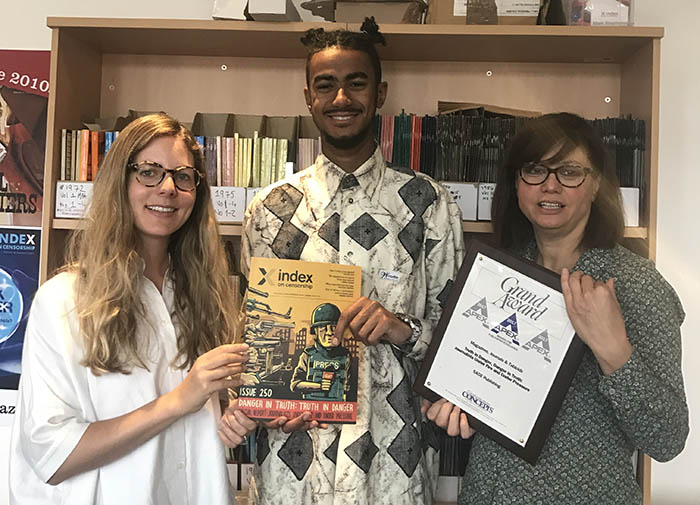
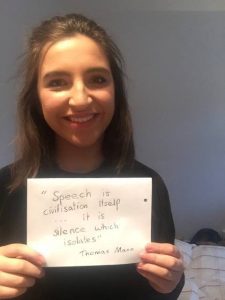 Fionnuala McRedmond – Dublin
Fionnuala McRedmond – Dublin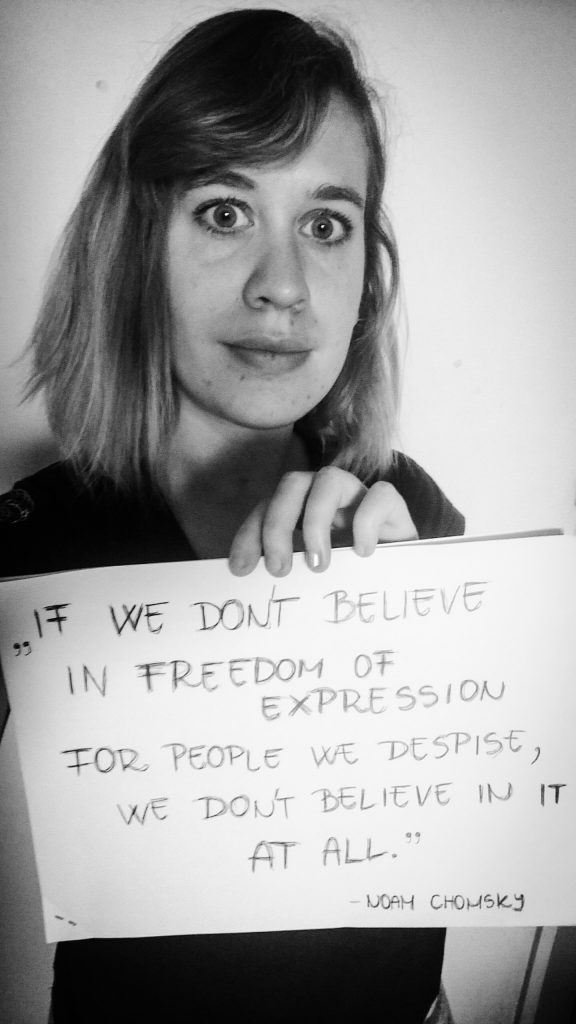 Júlia Bakó – Budapest
Júlia Bakó – Budapest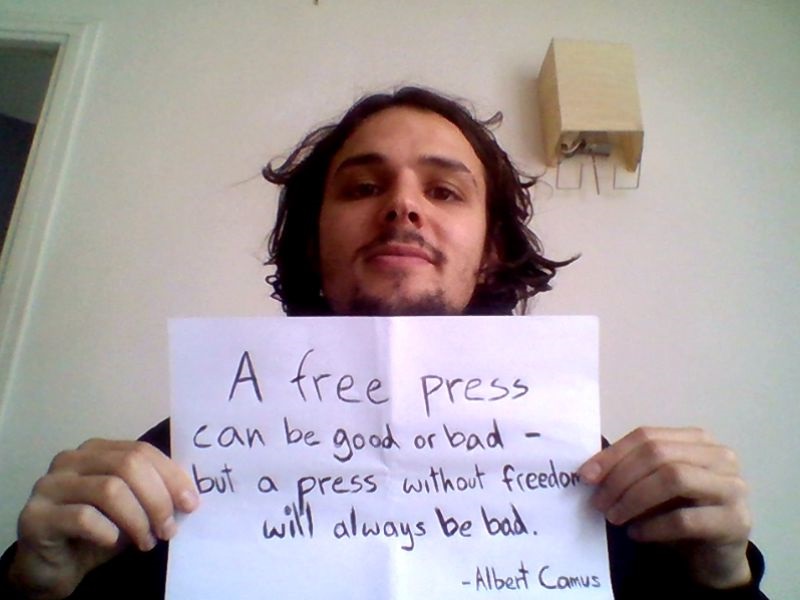 Samuel Earle – Paris
Samuel Earle – Paris 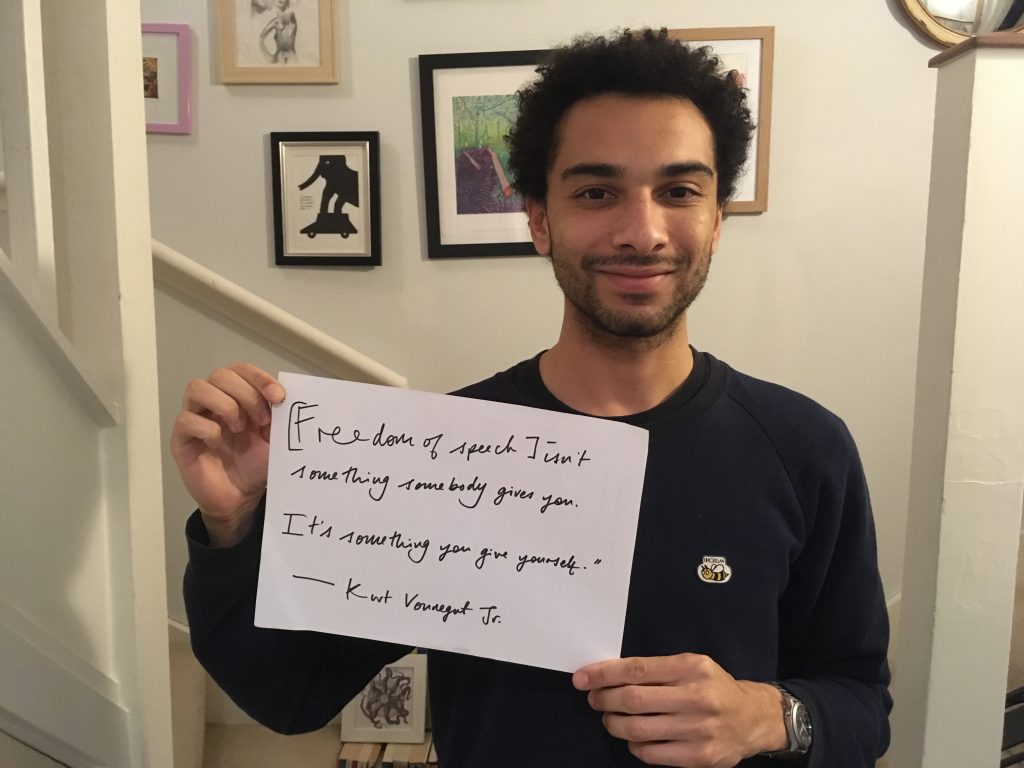 Samuel Rowe – London
Samuel Rowe – London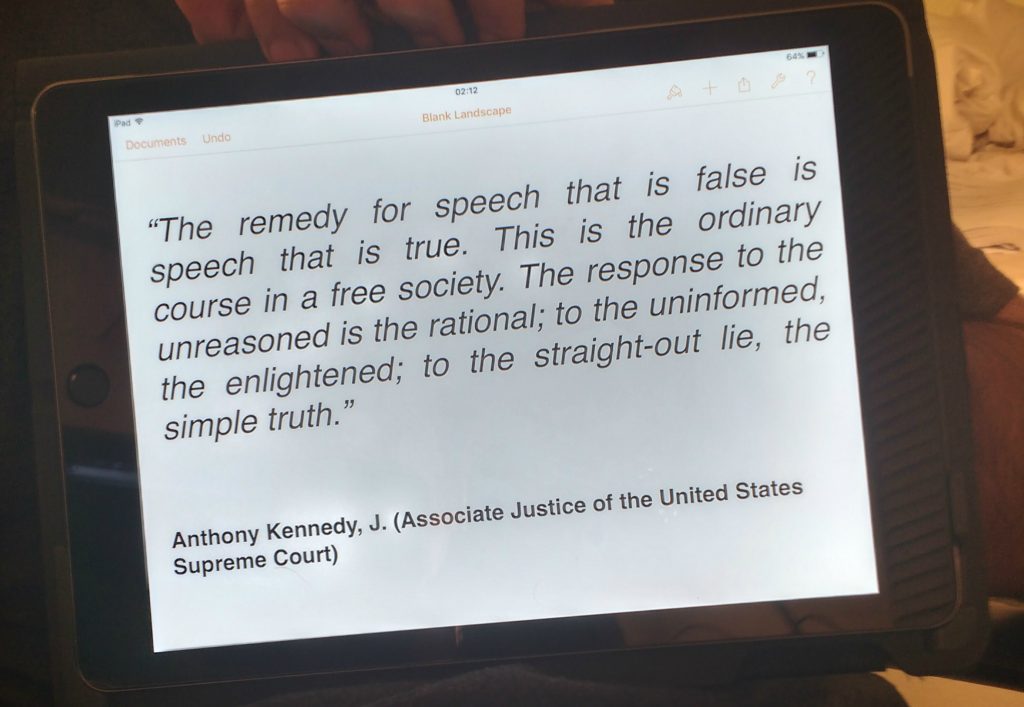 Tarun Krishnakumar – New Delhi
Tarun Krishnakumar – New Delhi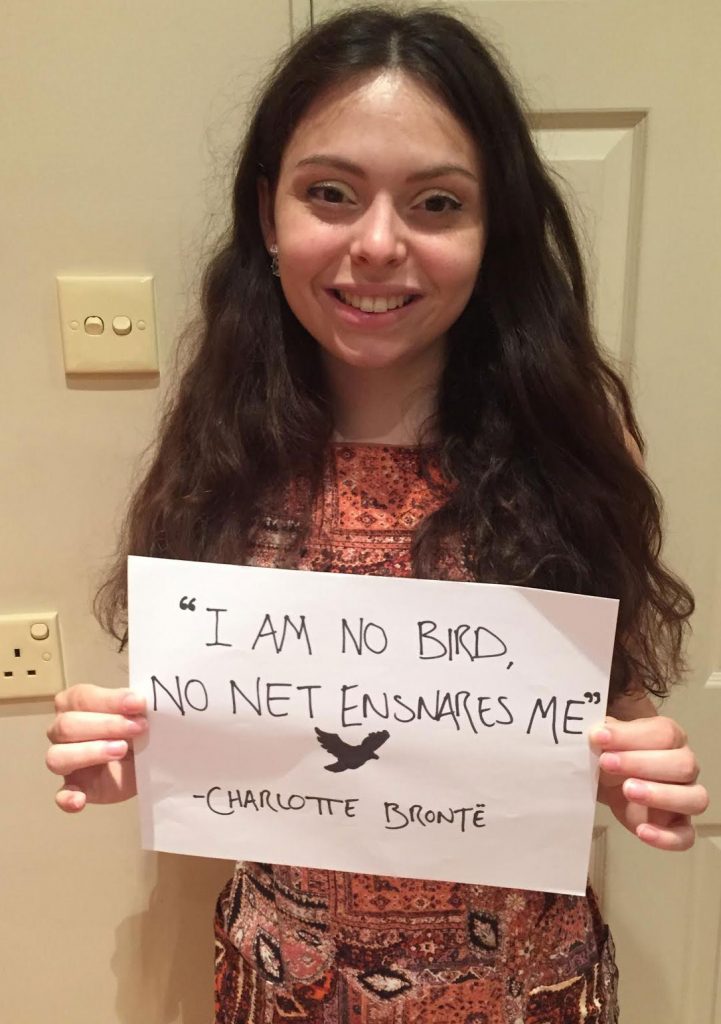 Sophia Smith-Galer – London
Sophia Smith-Galer – London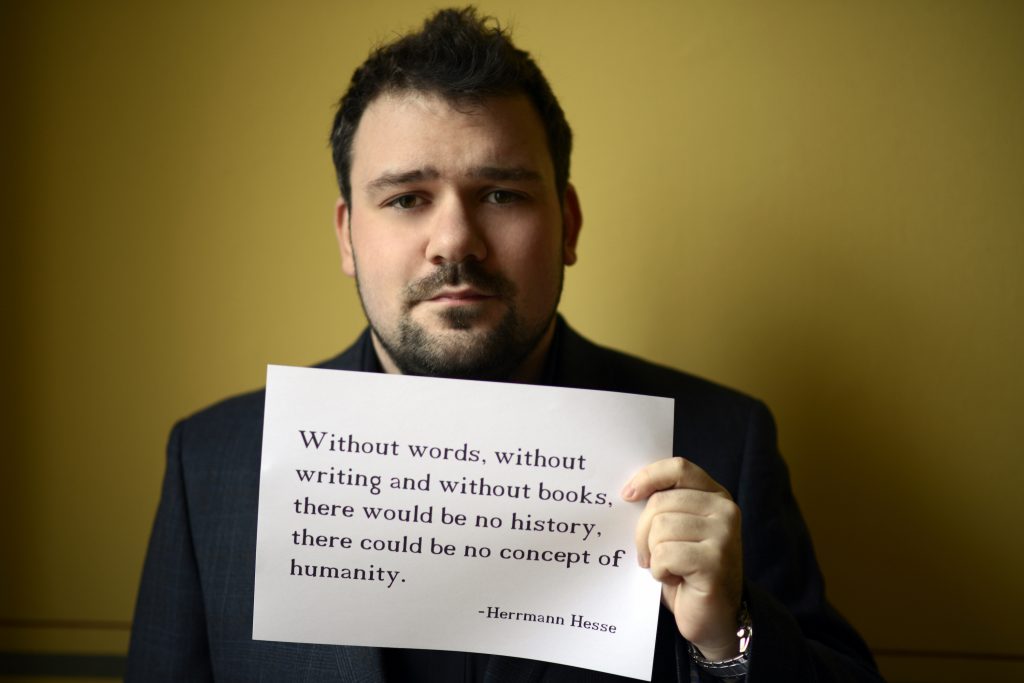 Constantin Eckner – St Andrews
Constantin Eckner – St Andrews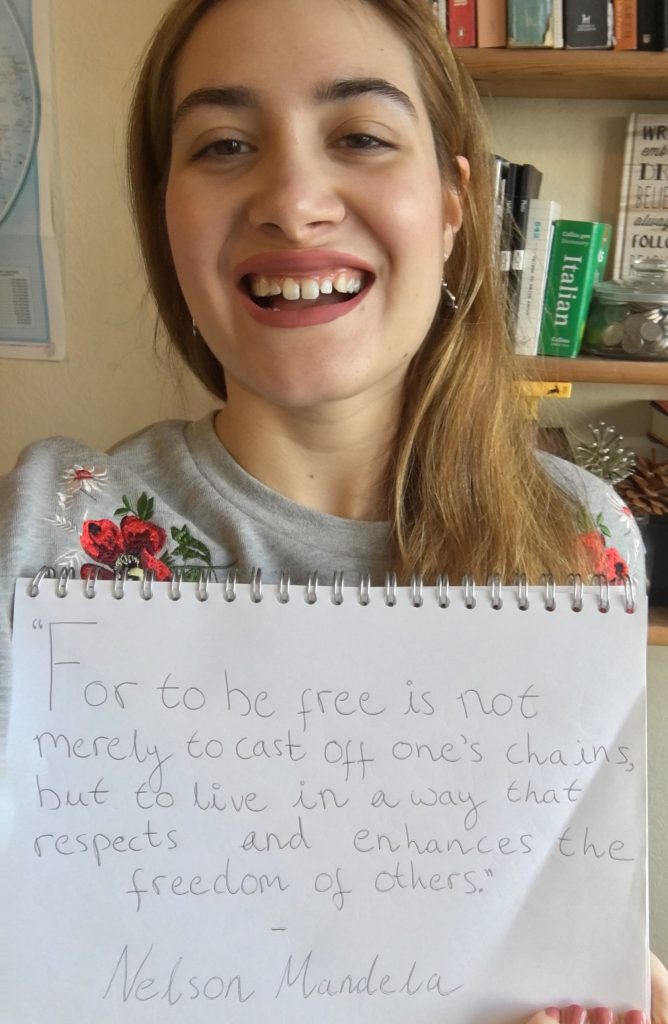 Isabela Vrba Neves – Stockholm
Isabela Vrba Neves – Stockholm